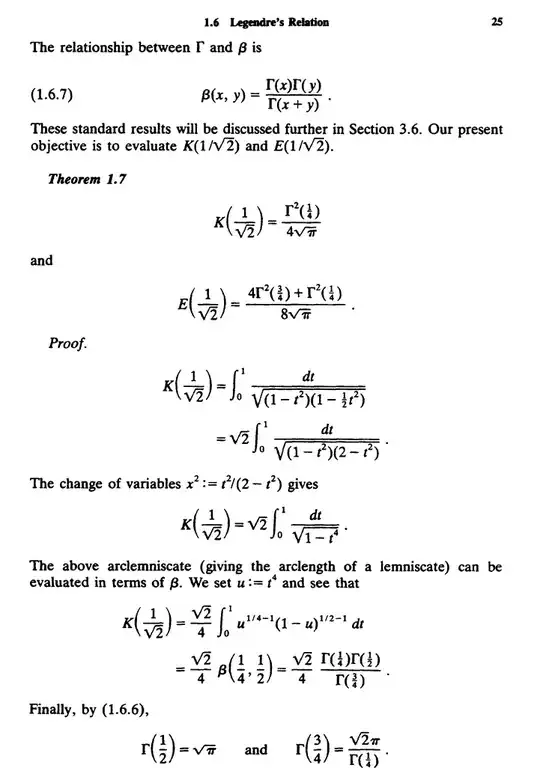(This is an addendum of sorts to Raymond's answer, and an expansion of my comment there.)
For certain small rational arguments, Borwein and Zucker show that the gamma function can be evaluated using the complete elliptic integral of the first kind $K(m)$ (where $m$ is the parameter), evaluated at so-called "singular values". Since the complete elliptic integral of the first kind can be evaluated using the quadratically convergent arithmetic-geometric mean,
$$K(m)=\frac{\pi}{2\mathrm{AGM}(1,\sqrt{1-m})}$$
we also have a fast way to evaluate the gamma function for those particular rational arguments.
Letting the singular values be denoted by $k_r=\lambda^\ast(r)$ (where $\lambda^\ast(r)$ is the elliptic lambda function), e.g.
$$\begin{align*}
k_1&=\frac{1}{\sqrt{2}}\\
k_2&=\sqrt{2}-1\\
k_3&=\frac{\sqrt{3}-1}{2\sqrt{2}}\\
k_4&=3-2\sqrt{2}\\
k_5&=\sqrt{\frac{1}{2}-\sqrt{\sqrt{5}-2}}\\
k_6&=\left(2-\sqrt{3}\right)\left(\sqrt{3}-\sqrt{2}\right)
\end{align*}$$
we have for instance the evaluations
$$\begin{align*}
\Gamma\left(\frac13\right)&=\frac{2^{7/9}\pi^{1/3}}{3^{1/12}}(K(k_3^2))^{1/3}\\
\Gamma\left(\frac14\right)&=2\pi^{1/4}\sqrt{K(k_1^2)}\\
\Gamma\left(\frac16\right)&=\frac{\sqrt{3}}{\sqrt[3]{2}\sqrt{\pi}}\left(\Gamma\left(\frac13\right)\right)^2\\
\Gamma\left(\frac18\right)\Gamma\left(\frac38\right)&=\sqrt{\sqrt{2}-1}\sqrt{\pi}2^{13/4}K(k_2^2)\\
\frac{\Gamma\left(\frac18\right)}{\Gamma\left(\frac38\right)}&=\frac{2\sqrt{\sqrt{2}+1}}{\sqrt[4]{\pi}}\sqrt{K(k_1^2)}
\end{align*}$$
See the Borwein/Zucker paper for more details.
With regards to the Lanczos approximation mentioned by Rory in his answer, Paul Godfrey presents a short note on how to derive the approximation that is somewhat more straightforward than the original derivation by Lanczos.
For other methods, see this paper by Schmelzer and Trefethen, and this webpage by Peter Luschny.
